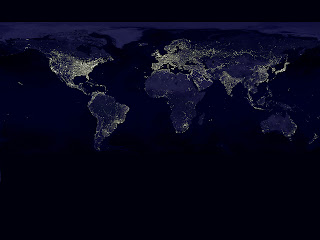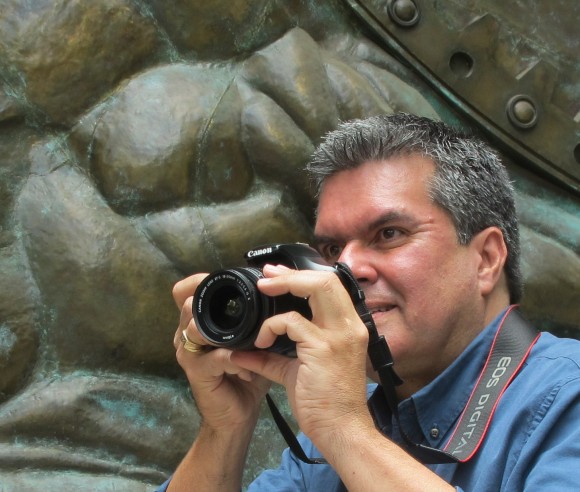1. En 1972 el rey de Bután decidió hacer de la Felicidad Nacional Bruta la prioridad de su país; y cuando leí aquella noticia, en The New York Times que publica Prensa Libre, pensé: De plano que es un truco publicitario para atraer al turismo New Age, y a imitadores de George Harrison, el ex Beatle que se volvió budista.
Sin embargo resulta que no. Algunos científicos sociales, economistas, y burócratas decidieron entrarle en serio a la investigación de la felicidad mediante el uso de encuestas y en el caso de la Subjective Well-Being Rankings of 82 Societies, de World Values Survey, uno se entera de que México ranquea en 4.32; El Salvador lo hace en 3.67 y que Perú está en 1.32. Puerto Rico ranquea alto en 4.67, e Indonesia ranquea bajo en -2.4. Guatemala no está incluida en el estudio.
Me hubiera gustado saber en qué rango está Guatemala, debido a que entre mis inclinaciones epicúreas, hedonistas y sibaritas considero que el derecho a la búsqueda de la felicidad es el más importante de los derechos individuales. Me adhiero plenamente a la frase de Ayn Rand, que dice que “El propósito de la moral es enseñarte, no a morir y a sufrir; sino a disfrutar y a vivir”.
Aquí hay que hacer un alto y tomar en cuenta algunos detalles que importantes: 1. las encuestas son instrumentos burdos para la exploración de la psique de las personas; 2. La noción de felicidad es algo muy personal; y 3. Las palabras feliz y felicidad no se traducen en forma directamente proporcional de un lenguaje a otro, y en todo caso expresan expectativas culturales e ideales que no son universales. Entonces, ¿no resulta muy subjetiva la medición del bienestar subjetivo?
Aquellos temas los explora el estudio In Pursuit of Happiness Research. Is it Reliable? What Does It Imply for Policy?, elaborado por Will Wilkinson, del Cato Institute; y tienen importancia actual porque en el ambiente electoral chapín, no falta quienes crean que las políticas públicas que apuntan al socialismo, son más efectivas que las políticas públicas capitalistas, en cuanto a favorecer aquella búsqueda.
La gente tiende a creer que el capitalismo “materialista” hace infelices a las personas; pero la evidencia muestra la libertad económica está fuertemente relacionada con niveles altos de felicidad. Para probar esto, Willkinson muestra los resultados del estudio Economic Policy and the Level of Self –Perceived Well-Being, por Ovasaka y Takashima.
Aquellos resultados “sugieren que la gente se preocupa, inconfundiblemente, acerca del grado en el que la sociedad en la que vive le provee de las oportunidades y de la libertad necesarias para emprender nuevos proyectos y para tomar decisiones basadas en sus propias preferencias”.
Hay verdades que se nos olvidan y que Willkinson nos recuerda con gracia: “Si usted quiere personas menos materialistas, cree más cosas materiales disponibles para ellas, de modo que puedan dejar de preocuparse tanto por lo material y empiecen a preocuparse por cosas como la felicidad y el significado de la vida”.
En conclusión: hay más posibilidades de encontrar la felicidad cuando tenemos libertad para elegir de acuerdo con nuestras preferencias, que cuando legisladores, burócratas e ingenieros sociales diseñan lo que debería hacernos felices.
2. Por error paré en la 8ª. Avenida de la Zona 1 el viernes pasado; y me llevé una sorpresa agradable al ver que en el sector por el que andaba los vecinos han pintado sus casas y han puesto macetas en los balcones. El área se ve muy agradable. Ojala que los cambios hayan sido voluntarios, y no bajo algún tipo de coacción.
3. Desde que leí un titularcito que decía Derrota al socialismo, aquí en Prensa Libre, he notado un silencio ensordecedor entre mis colegas. Claro que en Francia todavía están pendientes las elecciones parlamentarias de junio, y ahí se definirá todo. Empero, es un buen momento para ver el documental Heaven on Earth, The Rise and Fall of Socialism, que está disponible en Take One, la tienda de vídeos de Futeca, en la zona 14.
Publicada en Prensa Libre el sábado 12 de mayo de 2007


